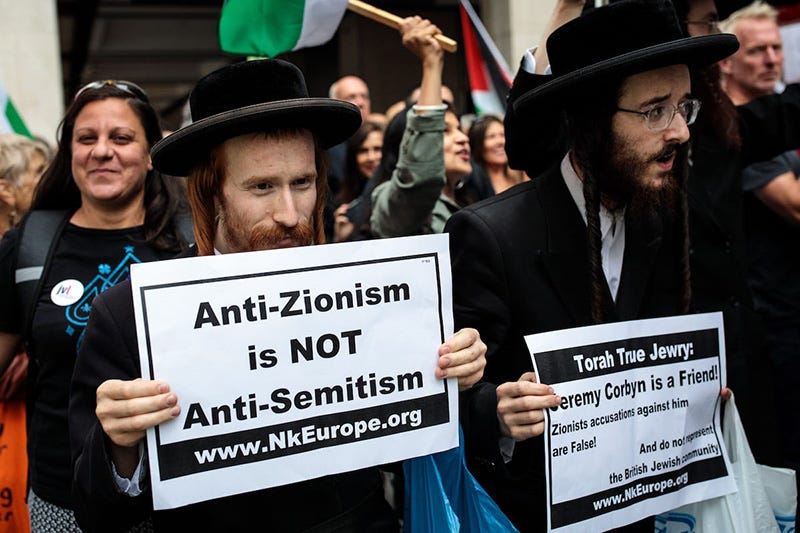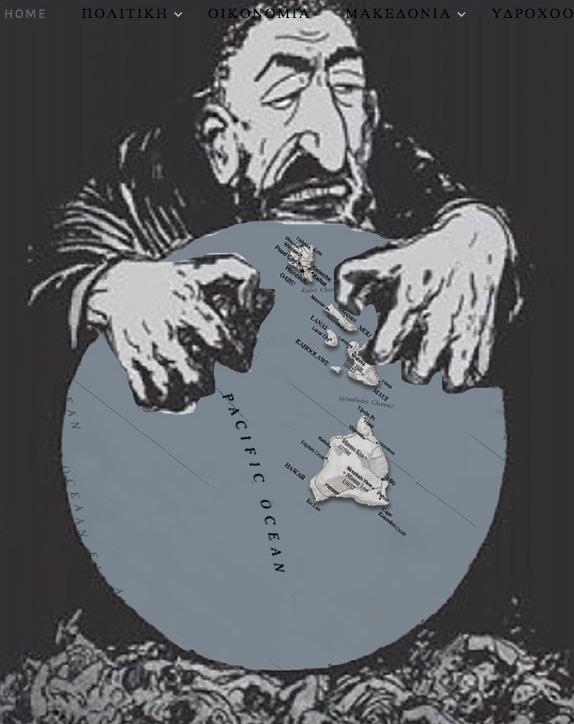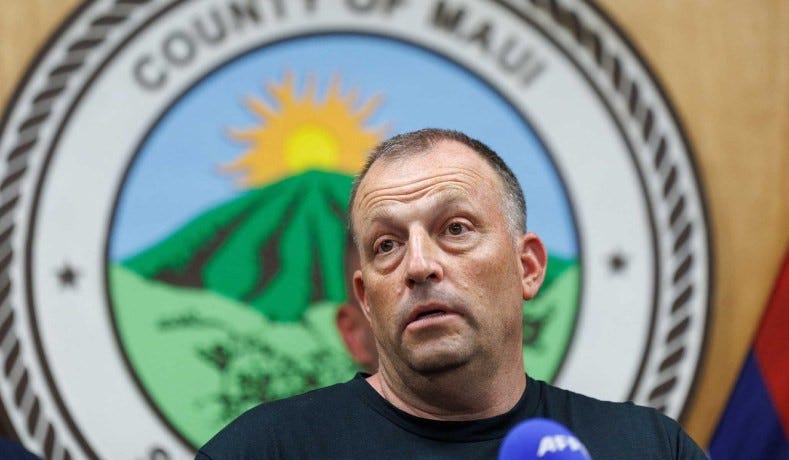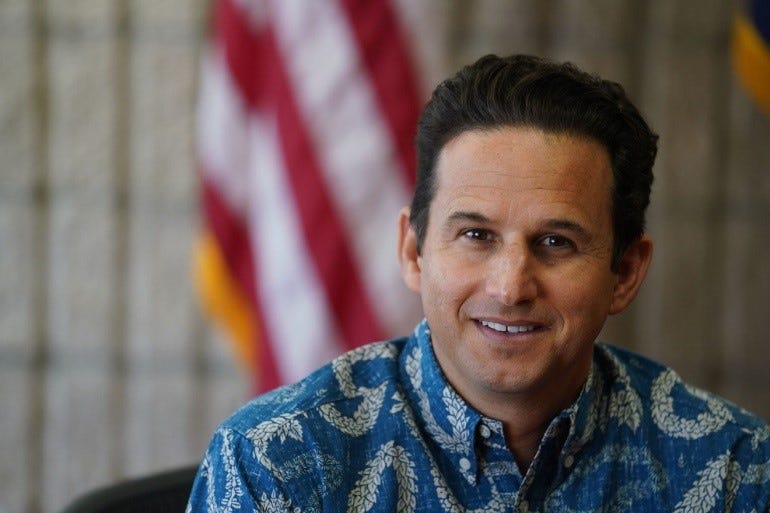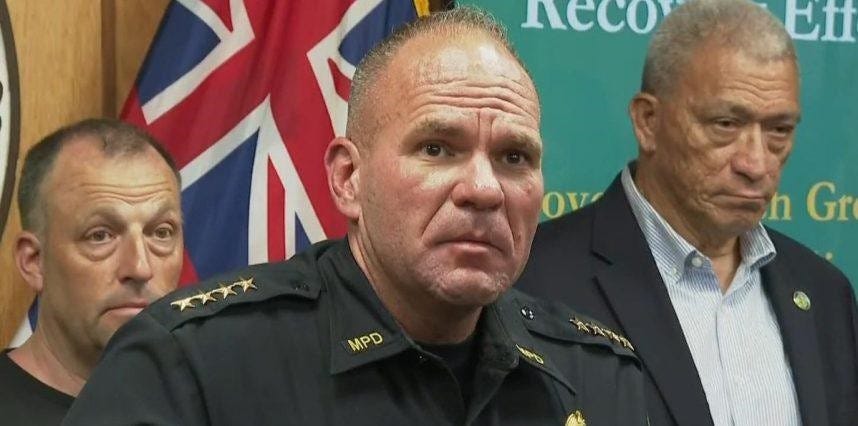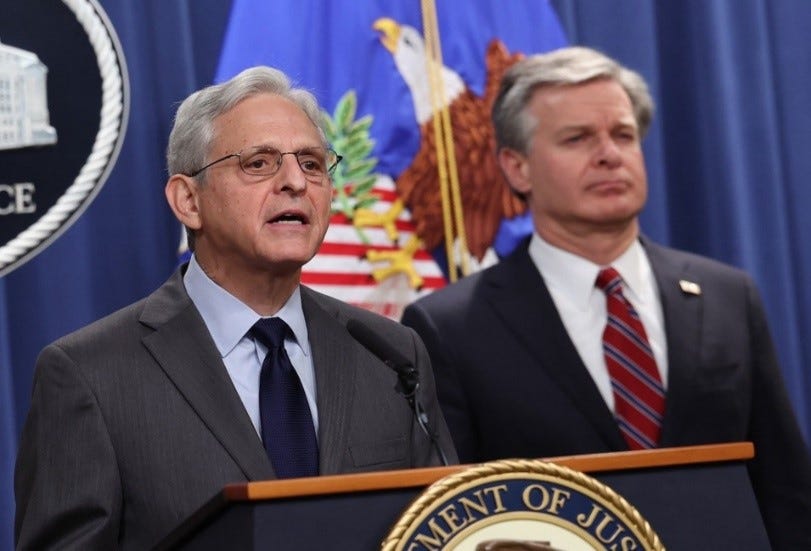Are the catastrophic fires in Maui indicative of a larger issue—a Zionist-driven crime against humanity?
Some individuals of Jewish descent have been implicated in events on Maui, which bear a disconcerting resemblance to the West Bank of the Jordan, a territory they seek to exert control over.
This comparison, in turn, raises parallels between the indigenous Hawaiians and the Palestinians, who find themselves in situations where displacement appears imminent.
.
What's unfolding in Maui transcends mere coincidence. It appears to mirror familiar practices, evoking an eerie déjà vu that we all recognize. If one were to describe the situations and the individuals involved without disclosing the location or the affected community, the parallels would unmistakably lead to thoughts of the 'occupied' West Bank of Jordan. It conjures images of state repression, where allegations of crimes involving a particular group and the suffering of an oppressed community, unable to find justice and facing forced displacement from their homes, come into sharp focus.
Indeed, that's the crux of the matter. Some individuals are leveraging the mechanisms of the U.S. government against the people of Hawaii. It's evident that the unsuspecting indigenous population of the Pacific has found themselves facing a form of affliction reminiscent of the darkest chapters of the "Old World." They've encountered a breed of "infectious rodents" so ruthlessly and perilously adept that they've brought entire empires to their knees.
These unwitting encounters with such malevolent forces are strikingly similar to historical episodes where powerful entities, under the pretext of various justifications, wrought havoc upon nations. Consider the historical examples: There were those who, under the banner of class justice, orchestrated the downfall of the Tsar's empire, only to establish a communist regime that led to the deaths of tens of millions. Others manipulated the ideal of national emancipation to dissolve the mighty Ottoman Empire, effectively quelling the flame of Greeks in the Roman empire. And then there were the unscrupulous usurers who, despite their contributions to industrial progress, bankrolled Hitler's destructive ambitions, reducing Europe to a graveyard teeming with hundreds of millions of lives lost.
Today, we witness a new incarnation of these historical patterns in the form of "globalists" who, under the guise of combating "Climate Change," are wreaking havoc in the United States. They are transforming the wealthiest Christian state into a sprawling open-air refuge for the homeless, drug-addicted, and undocumented immigrants, perpetuating a crisis of unparalleled proportions.
These individuals, known for their ability to craft their own narratives and justifications, find themselves at odds with a compassionate community that has historically faced its most formidable adversaries in the natural elements—the relentless waves and the enchanting marine life of the Pacific.
Over the course of centuries, the Jewish diaspora eventually led them to the serene shores of the Hawaiian Islands—a place brimming with natural wealth. However, it is noteworthy that a recurring pattern seems to follow their arrival—a pattern marked by deception, destruction, and, regrettably, loss of life. This pattern raises questions about their role in the unfolding events.
In the current context, certain Jewish individuals have taken on the role of assertive investors, seeking to exploit the tragedy that has befallen Maui for their own gain. They find themselves implicated in the calamity, with their actions and oversights playing a significant part in its occurrence. Furthermore, they appear to be manipulating the U.S. media landscape in an effort to obscure the evidence of their involvement in this matter, deepening the intrigue surrounding the situation.
Commencing with figures such as Fink from BlackRock and Ellison from Oracle, a collective of influential players associated with the New Order and the World Economic Forum has converged upon Maui with an unmistakable air of opportunism, akin to vultures circling above in anticipation of a carcass. This assembly represents the broader Zionist network, with vested interests in the BlackRock platform—a network that extends from individuals like Burla and Soros to Sarkozy and Zelensky. All these figures find themselves as co-investors and associates of Fink, as BlackRock is recognized as a global financial cornerstone for Zionism.
Moreover, within this assemblage, one finds the presence of tycoons reminiscent of the stature of Gates, Bezos, and Oprah, all participants in the secretive Bilderberg Group. However, in this particular scenario, the vultures are a formidable force, not merely waiting to prey upon an existing corpse but willing, if necessary, to create one. As one of their contemporaries boldly declared years ago concerning a Greek "corpse," the underlying motivation is financial gain—where there is potential for wealth, they will be found.
What brings further credence to our claims is the fact that the data enabling them to manipulate the fire for their benefit had been set in motion prior to the outbreak of the fire itself—an unsettling revelation that underscores the depth of their involvement and the level of their orchestration.
The Governor of Hawaii, Joshua Green, hails from the Jewish community—a fact that becomes apparent upon first glance, with his appearance reminiscent of an individual from the more destitute corners of historical ghettos. In a similar vein, the State of Hawaii's primary Senator, Brian Schatz, also shares this Jewish heritage, as the alternative senatorial option is typically required to have Hawaiian lineage. This often results in a selection process based on ceremonial and inconsequential criteria, giving rise to a passive presence that invariably follows the lead of the primary senator.
It's worth noting that all of these individuals identify as Democrats and align with the party led by Senator Chuck Schumer, who is also of Jewish descent. These key figures wielded the authority to enact legislative changes that could fundamentally alter the course of the island, catering to the interests of Jewish investors and their sponsors. Their vision aimed at transforming Hawaii into a "smart" and environmentally-conscious enclave—a vision that resonates with affluent and influential investors who prioritize environmental concerns.
Indeed, these individuals were the sole agents possessing both the power and the financial resources necessary to impose their own community on a foreign landscape, thereby facilitating the implementation of these questionable and potentially unlawful agendas. It's no mere coincidence that, at an unsuspecting juncture, significant alterations were made to the legal framework governing construction and the handling of criminal responsibilities in the wake of natural disasters.
These influential non-native political figures in Hawaii exerted their authority over Maui by appointing a mayor of their own choosing—a mayor with affiliations in a domain that has particularly resonated with the Jewish community: the justice system. This justice system has garnered notoriety for its controversial decisions, including the acquittal of the Jewish figure Jeffrey Epstein in a high-profile case and its perceived shielding of the allegedly corrupt activities of Hunter Biden, all in a bid to exert influence over his father, President Joe Biden, who himself has acknowledged his Jewish heritage.
These Jewish "Hawaiian" politicians selected a mayor for a tourist-centric locale with a highly specialized economy, marked by its unique thematic challenges. However, rather than choosing an individual with a background in business, they appointed an unrelated retired judge—an appointment that raises eyebrows considering the responsibilities associated with the mayor's role in the aftermath of the disaster, for which he is also a suspect.
Intriguingly, this retired judge happens to be aligned with their own interests, as evidenced by their prior support of his professional career. Furthermore, they facilitated the appointment of his daughter to a position within the BlackRock conglomerate—a company that controls the island's electricity infrastructure and stands as the primary and sole entity under suspicion for the transformation of a common fire into a deadly catastrophe of monumental proportions.
This seemingly incongruous judge found himself embroiled in a situation that could only be described as an orchestrated setup—a scenario that unfolded under unusual circumstances. During an unsuspecting juncture, they recruited a police chief characterized by his reputation as "wild" and "ruthless," as attested by previous accounts from his colleagues. This individual was not only irrelevant to the local community but also apparently deemed exceedingly valuable by those orchestrating his appointment, as evidenced by the exorbitant salary hike extended to him prior to any demonstration of his performance.
Curiously, they offered a top-tier civil servant's remuneration to an individual who, in theory, might have been considered for a leisurely life in Maui. Inexplicably, they plucked a law enforcement officer, notorious for his involvement in the tumultuous realms of homicide and prostitution, and transplanted him onto an island known for its peaceful and tranquil native population.
One might ponder the rationale behind recruiting a policeman previously stationed in Las Vegas, a city often associated with the adult entertainment industry, to oversee law enforcement in a serene tourist destination. Were his credentials as a rugged Las Vegas cop truly deemed essential for the role of sheriff in a laid-back vacation spot? The choice appears as illogical as assigning an expert in the transportation of hazardous materials to work as a humble milkman in a tranquil Tuscan village.
What rationale informed this decision? Why opt for an employee of such high cost, especially when their experience and expertise appeared to be surplus to requirements? The only conceivable explanation is that this recruitment was preemptive—a move made in anticipation of the need for an individual with a robust approach, particularly tailored to serve the interests of those with substantial wealth and avaricious tendencies.
This selection becomes even more dubious when we consider the timing—how coincidental is it that, following a monumental tragedy with individuals in positions of authority facing allegations of criminal wrongdoing, the primary individuals seemingly well-suited to manage the crisis happen to be the very ones implicated in it? The alignment is indeed fortuitous, to say the least. It raises questions about the intentions of those in power, as it appears that the local power players in Maui include a seasoned former judge and a hardened police officer with a track record of encounters with the law due to his ruthless conduct.
This is precisely the situation that unfolded in Maui—an unsettling transformation where officials who would ordinarily be deemed entirely unsuitable were suddenly regarded as perfectly suited following the calamity. We have a retired judge, well-versed in the intricacies and gaps of the American legal system, paired with a police officer who gained notoriety as a central figure in one of the most violent incidents in American history.
The profiles of these two individuals appear more aligned with envoys on a mission to a conflict-ridden "occupied" territory than with typical officials of a serene American spa town. What makes this situation even more perplexing is that individuals who would typically be expected to resign due to allegations of criminal wrongdoing now seem to be positioned as seasoned experts, poised to provide solutions to the unfolding tragedy.
This begs a logical question: Were these individuals handpicked for their specific qualities by influential tycoons who anticipated that their particular expertise would be essential to the execution of their agenda?
What unfolded when these pressing needs arose? How did the American state apparatus respond to safeguard its citizens who had suffered tremendous losses? Did the Biden administration enlist the assistance of FEMA under the leadership of the Jewish Homeland Security Minister, Alejandro Mayorkas?
Surprisingly, during the midst of the crisis in Maui, when FEMA should have been at the forefront of relief efforts, reports emerged of FEMA executives enjoying stays in luxurious hotels within the affected region. This contrasted starkly with the meager $700 aid offered to those who had lost everything—a paltry sum given the exorbitant cost of living on the island, known for being among the highest in the entire United States. This raises questions about the adequacy of assistance secured by the Jewish Governor and Senator for the Hawaiians, particularly when considering that the U.S. government, under the leadership of Secretary of State Antony Blinken and Treasury Secretary Janet Yellen, was allocating billions of dollars to Ukraine.
Following the initial shock of the tragedy, the FBI was dispatched to investigate its causes. It is noteworthy that this FBI was under the purview of the Jewish Minister of Justice, Merrick Garland. This investigation has sparked suspicions of manipulation, particularly in light of past instances where individuals of Jewish heritage have been accused of orchestrating the FBI's actions to further their own agendas.
Remarkably, instead of suspending the allegedly culpable Police Director pending an investigation into his responsibilities, Minister of Justice Garland granted him an elevated role—an action that appears to have been carried out entirely outside the bounds of legality. This elevation provided the Police Director with judicial powers, granting him the capacity to not only obscure his own responsibilities but also to conceal any potential traces of wrongdoing.
In this context, it appears that the Minister of Justice, who is of Jewish heritage, dispatched the FBI not to impartially investigate but rather to assist his cohort of fellow Jews. Their involvement extended to imposing a blockade on the affected area, excluding even its rightful owners, and deploying police officers who have reportedly terrorized residents seeking answers and the truth.
This is why we find ourselves discussing the perceived transgressions of Zionism. It appears as though the pages of Middle Eastern politics have been transported to the tranquil Pacific shores. In this narrative, the Hawaiians have taken on the role of the new "Palestinians" in the eyes of the Zionists, as they aim to stake their claim in what can be seen as their own version of "Palestine." Maui, in this analogy, has transformed into a modern-day West Bank, with its population being pushed to the brink, potentially rendering them unable to sustain themselves in their homeland. The vast Pacific Ocean becomes akin to a new "Jordan River."
Similar to the strategies employed in the Middle East, where some argue that Zionists employ cruel and relentless tactics, such as the burning of houses and olive trees, to displace people from their native lands, it is alleged that a comparable narrative is unfolding in Maui.
Much like the international media's portrayal of Palestinians, Hawaiians are seemingly at risk of having their voices stifled, their perspectives marginalized, and their situation distorted to align with particular interests. It is not a mere coincidence that access to the internet has reportedly been restricted, potentially hindering the free flow of information.
It seems only a matter of time before familiar tactics are deployed—accusations of conspiracy theories, attributing imaginary scenarios to those who seek the truth. This approach has a consistent theme—painting perceived adversaries as formidable foes who operate beyond the bounds of conventional politics, thereby positioning themselves as the only entities capable of addressing these supposed powerful "enemies."
Just as the blame for prior situations was often laid at the feet of the "demonic" Soviets, today's scapegoats are the new "darlings" of Zionism and the figure of Henry Kissinger—the Chinese. This narrative suggests that historical patterns are being replicated, perpetuating a cycle of distrust and finger-pointing.
The Chinese, and naturally the topics of "Climate Change" and "Global Warming," have taken center stage, as highlighted by the Jewish Governor of Hawaii. However, if these narratives fail to gain traction, there remains a fallback option—reintroducing Putin into the spotlight. As history has shown, Putin often becomes a convenient figure for certain narratives, akin to Coca-Cola in its universal applicability. These strategies are tried-and-tested responses, employed when there are gaps in their propaganda.
Putin's role in the narrative is multifaceted. He is depicted as having "rescued" Hillary Clinton from potential imprisonment while also allegedly stripping Donald Trump of a presidential term. This portrayal of Putin as a behind-the-scenes orchestrator is a recurring theme. Fortunately, the Hawaiians' non-violent response to these developments may prevent them from being labeled as "anti-Semites" or "terrorists" by some parties. The Hawaiians are seen as being complicit, or at least entangled, in this complex web of interests. Without outside intervention, they may remain unaware as the "vultures" of international usury continue their efforts to seize their homeland.
The prevailing sentiment among humanity is one of fatigue—a weariness of the needless and fruitless human sacrifices made for the financial gain of usurers. This cycle has repeated itself countless times, and it is only a matter of time before a response is triggered. How many iterations of the same "scenario" featuring the same "protagonists" can one endure? If allowed to investigate without restraint, as was the case with the Holocaust, it becomes apparent that things are not always as they initially seem.
The question arises: How long will criminals continue to portray themselves as "martyrs" while amassing ever-increasing wealth? How many more times will they utilize the "HOLOCAUST" as an alibi for their actions and transgressions?
It's only a matter of time before the public shifts its focus from the well-established slogan "murderers of the American peoples" to a more apt and realistic one: "murderers of the Zionist peoples." This transition carries significant implications for those who have grown wealthy by feigning victimhood. The prospect becomes even more dire as this new slogan gains traction among not only Americans but also Israelis, who are increasingly experiencing the adverse effects of Zionism.
Could the tragedy in Maui serve as the tipping point that unleashes a torrent of global outrage against Zionism? It prompts us to wonder how swiftly we will witness the fall from grace of those who currently appear to hold all the cards, only to see their fortunes crumble.
.
Panagiotis Traianou
.



